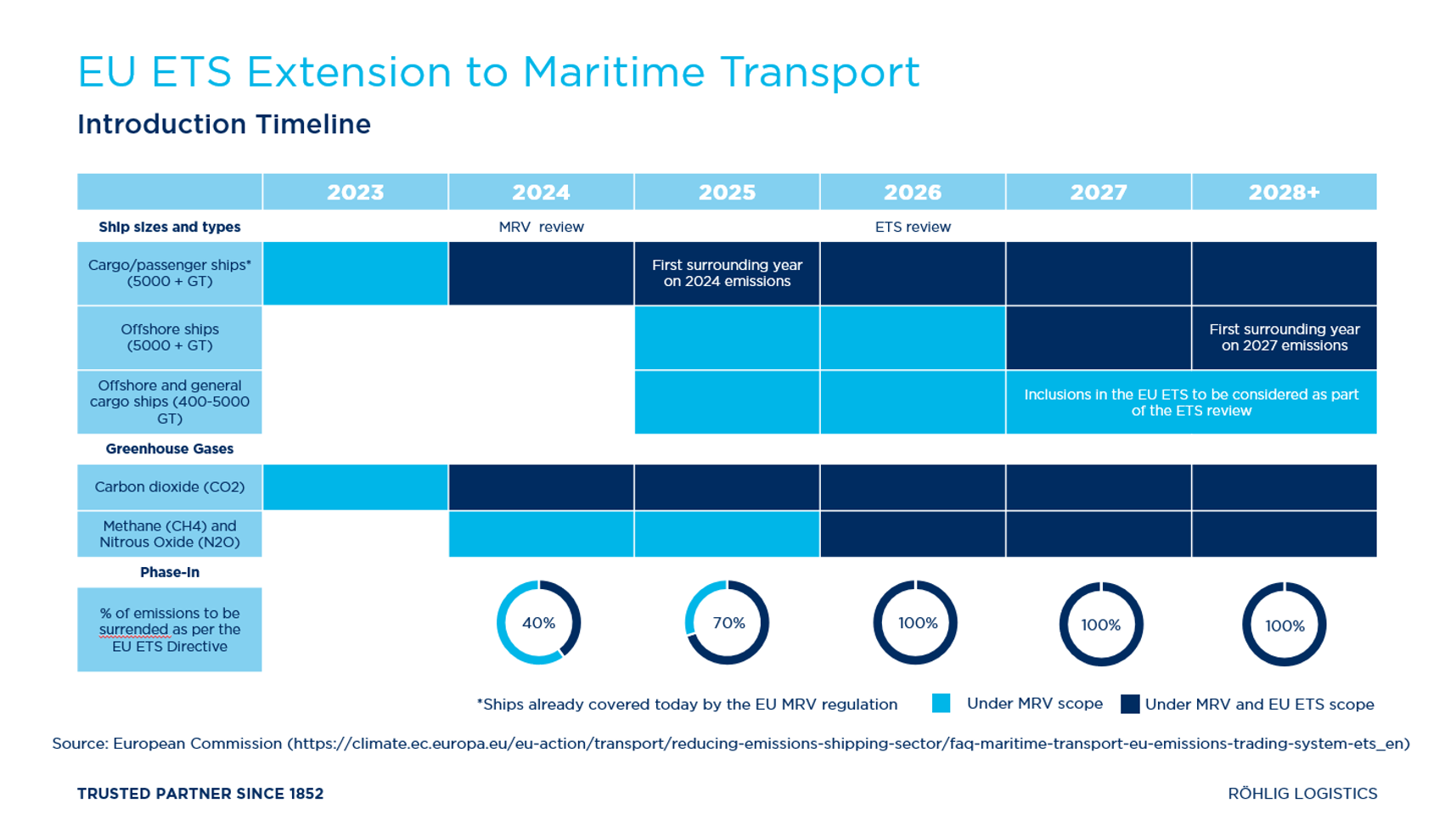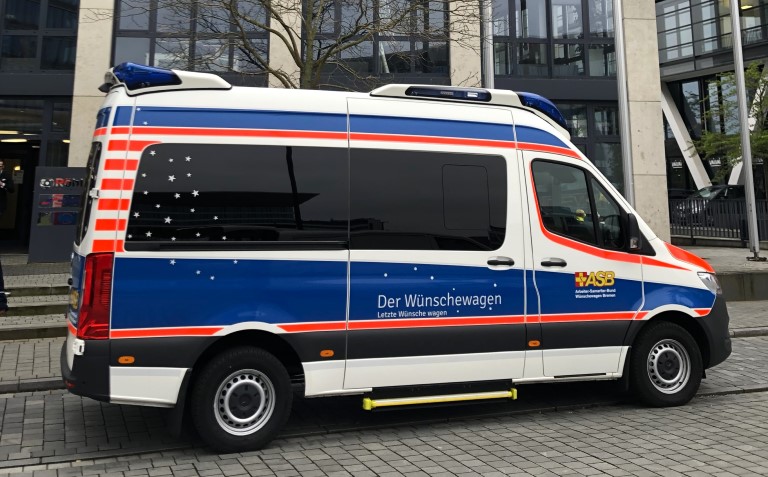Why reduce emissions from shipping?
While maritime transport is vital to the EU economy and is one of the most energy-efficient modes of transportation, it also contributes significantly to greenhouse gas emissions. In 2018, global shipping emissions reached 1,076 million tonnes of CO2, accounting for approximately 2.9% of total human-caused emissions.
Projections suggest that these emissions could rise by up to 130% compared to 2008 levels by 2050. If shipping emissions increase as anticipated, it will jeopardise the goals of the Paris Agreement, which aims to limit global warming to well below 2°C and strive for a cap of 1.5°C.
Within the EU, maritime transport contributed to 3 to 4% of total CO2 emissions, amounting to over 124 million tonnes in 2021.
To effectively reduce greenhouse gas emissions from international shipping, strong global measures are needed. In July 2023, the International Maritime Organisation (IMO) took a significant step by committing to new targets for GHG emissions reductions and planning to develop a set of measures by 2025 to meet these targets. The EU's efforts to ensure maritime transport contributes to achieving climate neutrality in Europe by 2050 are crucial for driving the necessary reductions.
A brief on EU Emissions Trading System (EU ETS)
From 1 January 2024, the EU ETS had extended to cover CO2 emissions from all large ships (of 5000 gross tonnage and above) entering EU ports, regardless of the flag they fly.
The EU ETS applies in all EU Member States, the European Free Trade Association countries (Iceland, Liechtenstein and Norway) as well as Northern Ireland for electricity generation (under the Protocol of Ireland and Northern Ireland).
It works on a system of allowances - an allowance is a permit to emit one ton of CO2. Each year, companies across several key sectors must surrender allowances equivalent to their CO2 emissions. Allowances can be bought from EU countries and auctioned and traded afterwards. The number of allowances available across industries is capped and this cap is reduced each year.
To ensure a smooth transition, shipping companies only have to surrender allowances for a portion of their emissions during an initial phase-in period:
2025: for 40% of their emissions reported in 2024;
2026: for 70% of their emissions reported in 2025;
2027 onwards: for 100% of their reported emissions.

A brief on FuelEU Maritime Regulation
Adopted in July 2023 as part of the Commission's Fit for 55 legislative package aimed at reducing EU greenhouse gas emissions by at least 55% by 2030, the FuelEU Maritime Regulation (Regulation (EU) 2023/1805) establishes two key obligations for vessels calling at EU ports:
- Greenhouse Gas (GHG) Intensity reduction: Sets specific targets for reducing the annual average GHG intensity of the energy used on board by ships, with reductions scheduled in 5-year increments, starting at 2% in 2025 and reaching 80% by 2050
-
Mandatory Use of Alternative Power Sources in Ports: Requires ships to utilise either on-shore power supply (OPS) or zero-emission technologies while at berth.
For more details on the FuelEU Maritime Regulation, please visit FuelEU Maritime Regulation: Q&A on implementation.
How is Röhlig Logistics contributing?
As a European-headquartered business, Röhlig Logistics is fully committed to supporting regulations and environmental actions that will benefit the planet. Here are some ways Röhlig Logistics shows our commitment to these regulatory practices:
-
Employee training and engagement: Educate employees about the importance of emissions reductions and engage them in sustainability initiatives. A knowledgeable workforce can contribute valuable ideas for reducing emissions.
-
Sustainability reporting: Regularly reporting on the company’s sustainability efforts and emissions reductions. Transparency can enhance reputation and stakeholder trust.
-
Collaboration and partnerships: Partnering with shipping lines to support their biofuel solutions for emission reductions.
-
Community engagement: Participating in local sustainability initiatives and collaborate with communities to promote broader environmental goals.
-
Staying informed on policy changes: Regularly updating our knowledge about changes in global regulations and related environmental policies to ensure compliance. We will adapt our practices accordingly and keep our customers informed in advance.
-
Participation in carbon markets: Engage in the carbon trading market by buying and selling allowances. This can help manage costs and create opportunities for profit through strategic trading.
By adopting these strategies, Röhlig Logistics not only complies with EU regulations but also shares a strong ambition to lead in sustainability.
How can I contribute as a Röhlig Logistics customer?
Supporting the EU Emissions Trading System (ETS) and FuelEU Maritime Regulation can be beneficial for your company in various ways. Here are some strategies to consider:
- Understand compliance requirements: Familiarise yourself with the EU ETS and FuelEU Maritime requirements relevant to maritime transport. This includes understanding how emissions from your shipping operations will be measured and reported and recognise that the cost of compliance will be expected to increase in the coming years.
- Be prepared: Be prepared for the introduction of the new emission surcharge in 2025. The actual surcharge for Q1 2025 will be published in December 2024, about 30 days before it takes effect.
-
Be conscious about your shipping patterns: Recognise your shipment pattern and use route optimisation to reduce fuel consumption. Efficient routing can minimise distance and time at sea, thus lowering emissions.
-
Participate in carbon offsetting: Engage in carbon offset programs that allow you to compensate for emissions that cannot be eliminated. This could include investing in renewable energy projects or reforestation initiatives.
-
Engage with stakeholders: Collaborate with port authorities, forwarders such as Röhlig Logistics, and industry organisations to share best practices and develop collective strategies for emissions reductions.
-
Train employees: Educate your staff on sustainable shipping practices and the importance of emissions reduction. Training can lead to more efficient operations.
-
Stay informed on policy changes: Regularly update your knowledge about changes in global regulations and related environmental policies to ensure compliance. Röhlig Logistics representatives will keep you updated with the latest news from the market.
We thank you for playing a part to ensure a sustainable world for the future generations to live in.


